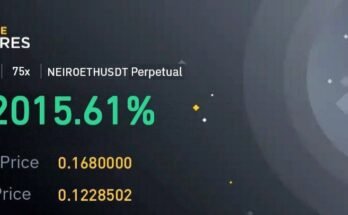In the digital age, video content has become an integral part of online communication, marketing, and entertainment. From social media platforms to educational websites, videos are a powerful medium to engage audiences, convey messages, and build brands. However, creating high-quality videos requires a combination of technical skills, creative vision, and the right tools. This is where video creation courses come into play. These courses are designed to equip individuals with the knowledge and skills needed to produce professional-looking videos, whether for personal projects or business purposes.
What is a Video Creation Course?
A video creation course is a structured program that teaches participants the fundamentals and advanced techniques of video production. These courses cover a wide range of topics, including scriptwriting, storyboarding, filming, editing, and post-production. They are designed for various skill levels, from beginners who have never touched a camera to experienced videographers looking to refine their skills. Video creation courses are offered by various institutions, including universities, online learning platforms, and specialized training centers.
How Video Creation Courses Work
Video creation courses typically follow a structured curriculum that guides participants through the entire video production process. Here’s a general overview of how these courses work:
- Introduction to Video Production: The course usually begins with an overview of video production, including the different stages of creating a video, the equipment needed, and basic concepts such as frame rates, resolution, and aspect ratios.
- Scriptwriting and Storyboarding: Participants learn how to develop a script and create a storyboard, which are essential steps in planning a video. This stage focuses on storytelling, structuring the narrative, and visualizing the scenes.
- Filming Techniques: This section covers the technical aspects of filming, including camera settings, lighting, sound recording, and shot composition. Participants practice using different types of cameras and equipment to capture high-quality footage.
- Editing and Post-Production: Editing is a crucial part of video creation. Courses teach participants how to use editing software to cut and arrange footage, add effects, transitions, and music, and correct color and audio issues. Post-production also includes adding graphics, text, and special effects.
- Finalizing and Publishing: The final stage involves exporting the video in the desired format and preparing it for distribution. Participants learn about different platforms for sharing videos, such as YouTube, Vimeo, and social media, and how to optimize their videos for these platforms.
- Assignments and Projects: Throughout the course, participants are given assignments and projects to apply what they’ve learned. These practical exercises are crucial for gaining hands-on experience and building a portfolio of work.
- Feedback and Evaluation: Instructors provide feedback on assignments and projects, highlighting areas of improvement and offering tips for refining skills. Some courses also include peer reviews, allowing participants to learn from each other.
Features of Video Creation Courses
Video creation courses come with a variety of features designed to enhance the learning experience and provide comprehensive training. Here are some key features commonly found in these courses:
1. Expert Instructors
Courses are often taught by industry professionals with extensive experience in video production. These instructors provide valuable insights, real-world examples, and personalized feedback to help participants improve their skills.
2. Comprehensive Curriculum
A well-structured curriculum covers all aspects of video production, from pre-production to post-production. This ensures that participants gain a thorough understanding of the entire process.
3. Hands-On Projects
Practical assignments and projects allow participants to apply what they’ve learned in a real-world context. These projects often involve creating short films, promotional videos, or documentaries.
4. Access to Professional Tools
Many courses provide access to professional-grade equipment and software. This includes cameras, lighting kits, microphones, and editing software like Adobe Premiere Pro, Final Cut Pro, and DaVinci Resolve.
5. Online and Offline Options
Courses are available in both online and offline formats. Online courses offer flexibility, allowing participants to learn at their own pace, while offline courses provide hands-on training in a classroom or studio setting.
6. Interactive Learning
Interactive elements such as live webinars, Q&A sessions, and discussion forums enhance the learning experience. Participants can ask questions, share their work, and receive feedback from instructors and peers.
7. Certification
Upon completion, many courses offer a certificate of completion, which can be a valuable addition to a resume or portfolio, showcasing the participant’s skills and knowledge in video production.
8. Community Support
Joining a video creation course often means becoming part of a community of like-minded individuals. This network can provide ongoing support, collaboration opportunities, and inspiration.
9. Lifetime Access
Some courses offer lifetime access to course materials, allowing participants to revisit the content and continue learning at their own pace.
10. Up-to-Date Content
The world of video production is constantly evolving with new technologies and techniques. Quality courses regularly update their content to reflect the latest trends and advancements in the industry.
Pros of Video Creation Courses
| Pros of Video Creation Courses | Description |
|---|---|
| Comprehensive Skill Development | Covers all aspects of video production, providing a well-rounded education. |
| Professional Instructors | Taught by industry experts who provide valuable insights and personalized feedback. |
| Hands-On Experience | Practical assignments and projects help participants apply their knowledge in real-world scenarios. |
| Access to High-Quality Tools | Provides access to professional-grade equipment and software, enhancing the learning experience. |
| Flexible Learning Options | Offers both online and offline courses, catering to different learning preferences and schedules. |
| Certification | Certificates add value to resumes and portfolios, showcasing participants’ skills and knowledge. |
| Community and Networking | Builds a supportive community of like-minded individuals for collaboration and inspiration. |
| Lifetime Access | Allows participants to revisit course materials and continue learning at their own pace. |
| Updated Content | Regularly updated to reflect the latest trends and advancements in video production. |
Cons of Video Creation Courses
| Cons of Video Creation Courses | Description |
|---|---|
| Cost | High-quality courses can be expensive, which may be a barrier for some individuals. |
| Time Commitment | Comprehensive courses require a significant time investment, which may be challenging for busy individuals. |
| Technical Requirements | Requires access to certain hardware and software, which may be an additional cost. |
| Learning Curve | Steep learning curve for beginners, particularly in mastering editing software and technical skills. |
| Quality Variation | The quality of courses can vary widely; some may not meet the expectations or needs of participants. |
| Internet Dependency (for Online) | Online courses require a reliable internet connection, which can be a limitation in some areas. |
| Limited Hands-On Interaction (Online) | Online courses may lack the hands-on interaction and immediate feedback available in offline settings. |
| Self-Motivation Required | Online learners need to be self-disciplined and motivated to keep up with the course material. |
Video Creation Course Alternatives
| Alternative | Description |
|---|---|
| YouTube Tutorials | Free video tutorials covering various aspects of video production. Suitable for self-learners. |
| Books and eBooks | Comprehensive guides on video production techniques and theory. Good for in-depth learning. |
| Workshops and Seminars | Short-term, intensive training sessions offered by professionals. Ideal for hands-on learning. |
| Film School | Formal education programs offering degrees in film and video production. Best for a career in the industry. |
| Online Learning Platforms | Websites like Coursera, Udemy, and LinkedIn Learning offer a variety of video production courses. |
| Mentorship Programs | One-on-one guidance from experienced professionals. Personalized learning experience. |
| Community College Courses | Affordable, local courses with hands-on training. Good for those looking for a structured program. |
| Practice and Experimentation | Self-directed learning through trial and error. Develops practical skills and creativity. |
Conclusion and Verdict on Video Creation Courses
Video creation courses offer a comprehensive and structured approach to learning the art and science of video production. They provide participants with the skills, knowledge, and hands-on experience needed to create high-quality videos. The benefits of these courses include access to expert instructors, professional tools, and a supportive community. However, potential drawbacks such as cost, time commitment, and the need for technical equipment should be considered.
For individuals serious about pursuing video production, whether as a hobby or a career, video creation courses are a worthwhile investment. They provide a solid foundation and a pathway to mastering the craft. For those on a budget or with limited time, alternatives like YouTube tutorials, books, and mentorship programs can also be valuable resources.
Ultimately, the decision to enroll in a video creation course should be based on personal goals, learning preferences, and available resources. By carefully considering these factors, aspiring videographers can choose the best path to achieving their creative and professional aspirations.
FAQs Video Creation Course
1. What is the average duration of a video creation course?
The duration of video creation courses can vary widely. Short courses may last a few weeks, while comprehensive programs can span several months to a year. The exact length depends on the depth of the curriculum and the intensity of the course.





